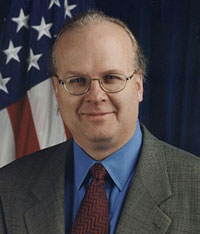Subpoenas in their pockets, U.S. Democrats press White House to let top aides to testify
With subpoenas in hand for U.S. President George W. Bush's political guru, Karl Rove, and other top aides, Democrats are pressing the White House to drop its strict terms and allow the advisers to testify about their roles in the firing of federal prosecutors.

The brokering has already begun. Republican Senator Arlen Specter floated a compromise Thursday with Bush's counsel, Fred Fielding, even as both sides publicly ratcheted up the confrontation. The White House said Fielding would pass the proposal to Bush.
A Senate panel joined the House of Representatives on Thursday in authorizing subpoenas for the aides, and the White House insisted it would fight attempts to compel Rove and others to appear on camera or testify under oath.
Members of both parties want to know why the Justice Department fired eight well-regarded U.S. attorneys over the winter; whether politicians pressured the prosecutors to rush corruption cases; and whether the firings were punishments for the prosecutors' balking at Bush administration priorities. The prosecutors are appointed to four-year terms by the president and can be dismissed at any time. They are supposed to be outside the realm of politics, however.
It is the latest chapter in a drama pitting Democrats, who have promised to use their new congressional majority to end the Iraq war and scrutinize the Bush administration, against a president who is battling to protect his prerogatives and exert his waning influence, the AP says.
Behind the scenes, lawmakers and the White House appeared to be seeking a compromise that could avert a full-blown legal confrontation, which could ultimately cause a prolonged court battle.
Specter, the former Judiciary chairman, reached out to the White House with his proposal to allow the aides to be questioned publicly by just a limited number of lawmakers without putting them under oath.
Fielding "listened attentively, and said that he had no authority to negotiate, but that he would take my suggestions to the president," Specter said.
Neither Senator Patrick Leahy nor Representative John Conyers, the Democratic chairmen of the Judiciary panels in the two chambers of Congress, appeared in any rush to issue the subpoenas.
"I'll issue them when we're ready," Leahy said Thursday night. He said he wants to see more documents and await the outcome of a hearing on the matter next week before he decides how to continue.
Democrats said their action gave them a bargaining chip in negotiations with Bush over the terms of any testimony. The White House has said the aides would provide only limited interviews with select lawmakers behind closed doors, without a transcript, and not under oath.
A court clash with the executive branch over subpoenas could produce months and even years of legal wrangling, possibly even delay an opportunity for lawmakers to question Bush's top aides until after he leaves office.
In letters to Fielding Thursday, House and Senate Judiciary Democrats said they could not accept Bush's conditions.
"Unfortunately, these letters show they aren't as interested in ascertaining the facts than going on a political fishing expedition," said White House spokeswoman Dana Perino.
Attorney General Alberto Gonzales, fighting for his job amid the prosecutor furor, promised to cooperate with Congress in the inquiry. "I'm not going to resign," he told reporters Thursday.
Republican Representative Paul Gillmor said Gonzales has become a "lightning rod" for criticism and joined a growing number of Republican lawmakers who want him out. "It would be better for the president and the department if the attorney general were to step down," Gillmor said.
Bush is standing by Gonzales. He insists that the firings of the prosecutors were appropriate, while Democrats argue they were motivated by politics or favoritism, the AP wrote.
The Senate panel voted to approve subpoenas for Rove, former White House counsel Harriet Miers and her former deputy, William Kelley. The House authorized similar subpoenas a day earlier.
Democrats object to Bush's offer, which Fielding relayed to Congress on Tuesday, in large part because there would be no transcript and the testimony would not be public.
"I've had a lot of those unstructured briefings and found that I was given, in many instances, not the whole truth, nothing near the whole truth," Leahy said.
He and Specter have formally asked Gonzales' former top aide Kyle Sampson, who has resigned amid the prosecutors furor, to testify voluntarily next week before the Judiciary panel. The panel approved a subpoena for Sampson last week.
Subscribe to Pravda.Ru Telegram channel, Facebook, RSS!




